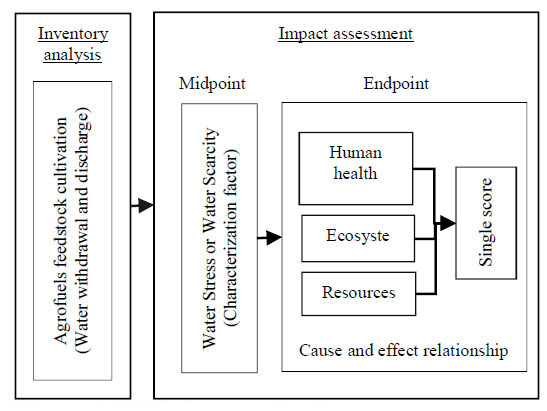Water Assessment of Agrofuels Feedstock Cultivation: Methodology Approaches
Main Article Content
Abstract
The promotion of agrofuels for transportation may exacerbate the water demand especially due to increased agriculture. Water Footprint (WF) and Life Cycle Assessment (LCA) are the two well-developed approaches for evaluating quantities and potential impacts of water used for the entire product system and its supply chain. WF defines water based on source and pollution as green, blue and gray water while LCA accounts for water based on types of water use. Considering a result interpretation for water inventory, WF gives a more meaningful result than LCA in terms of water resource management. Likewise, LCA is more appropriate than WF for assessing impact via cause and effect relationship. As more water is usually required for growing the feedstock during cultivation rather than for processing agrofuels, WF and LCA can be applied together for water assessment of agrofuels feedstock cultivation. WF is applied at the inventory level to reflect the competition for water due to agriculture for food, feed, fibre and fuel. Then LCA is conducted using impact assessment for quantitative evaluation of water use with respect to water scarcity. Spatial data, meteorological data, agricultural practices and land use are required. The alternative results for expansion of the feedstock cultivation areas can be obtained through a scenario analysis. In conclusion, it is seen that both these methods are useful for assessing water and may likely be developed further for sustainability assessment of agrofuels.
Article Details
Published articles are under the copyright of the Environment and Natural Resources Journal effective when the article is accepted for publication thus granting Environment and Natural Resources Journal all rights for the work so that both parties may be protected from the consequences of unauthorized use. Partially or totally publication of an article elsewhere is possible only after the consent from the editors.

